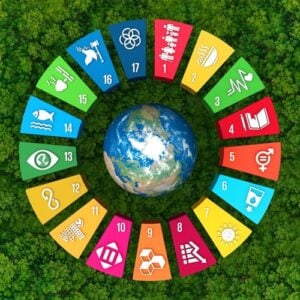Well-planned, well-managed nature-based tourism is emerging as a powerful engine of economic growth and sustainable development. Tourist spending on activities, transportation, food, and accommodation creates ripple effects across local economies, generating jobs, strengthening value chains, and driving private sector growth. In destinations rich in natural assets but limited in economic opportunities, this form of tourism helps diversify rural incomes, finance biodiversity conservation, and empower local communities.
Visitor entrance fees, tourism concessions, and leasing fees are becoming key funding sources for biodiversity protection, with more countries prioritizing nature-based tourism as global demand continues to rise. However, experts warn that natural capital must not be taken for granted as tourism opportunities expand. Developing nations, in particular, face challenges in building infrastructure, improving policy frameworks, and attracting private investment to fully unlock tourism’s potential. Weak management of protected areas, pollution, poaching, and fragmented landscapes also threaten the very assets that attract visitors.
The World Bank Group is actively investing in programs to help countries protect natural assets, grow and diversify nature-based tourism businesses, and share the benefits with local communities. These programs support flexible policies, risk management, and the development of tools to measure the economic impact of tourism in protected areas—data that is essential for informed decision-making and sustainable development.
Globally, tourism is projected to contribute 10.3% of GDP—around USD 11.7 trillion—and support 371 million jobs by 2025 (World Travel & Tourism Council). Nature-based tourism alone generates about 8 billion visits each year to protected areas covering 17% of the world’s land and 8% of its marine zones. In Uganda, each tourist dollar generates $2.03 in local income around Queen Elizabeth National Park. In Madagascar, the multiplier is even higher at $2.48 near Nosy Tanikely National Park. In Zambia’s South Luangwa National Park, tourism provides jobs for 30% of the working-age population.
The economic returns are striking. In Bwindi Impenetrable National Park, tourism generated $31.7 million in economic benefits compared to a park budget of just $2.3 million. In Lao PDR’s Nam Ha National Protected Area, trekking and homestays generate cash income for more than 20 ethnic groups. These examples show how tourism revenues can far exceed operational costs while supporting conservation and community livelihoods.
To sustain these benefits, strong partnerships between public institutions, private firms, and local communities are critical. Investment is needed in both natural and built infrastructure, as well as in training local people to participate in tourism economies. Improving regulatory environments to attract high-quality investors is equally important. Meaningful engagement with communities—particularly those most affected by tourism projects—remains central to ensuring equitable benefits and minimizing environmental and social risks.
Despite its potential, a significant data gap persists in measuring tourism’s true economic impact. Traditional cost-benefit analyses focus on direct spending—such as hotels and restaurants—while overlooking the wider economic spillovers that create income multipliers. To bridge this gap, the World Bank is using Local Economy-Wide Impact Evaluation (LEWIE) models to quantify both direct and indirect impacts of tourist spending. Early studies in Brazil, Fiji, Nepal, Zambia, Madagascar, and Uganda reveal that tourism often stimulates more economic activity in non-tourism sectors than in tourism itself.
These findings highlight the need for greater investment in data collection and the integration of nature-based tourism into national economic strategies. As the market expands, well-planned tourism can simultaneously create jobs, strengthen economies, and protect the planet’s most valuable natural resources—proving that conservation and development can thrive together.







